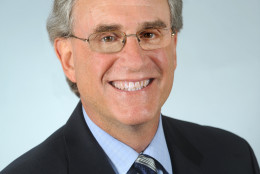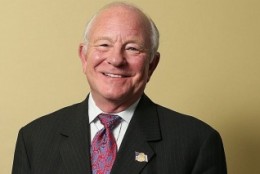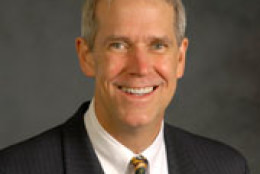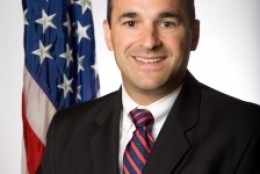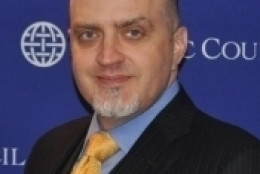Cybersecurity
-
OPM's recent cybersecurity breach shows how tight budgets, limited expertise and cultural blind spots create perfect storms of agency vulnerability throughout the federal environment.
July 20, 2015 -
Winvale and its subcontractor CSID want to bid on the larger contract to help the 21.5 million people affected by the breach of OPM's security-clearance database, Winvale CEO Kevin Lancaster said. "We'd absolutely go again for it. We have capacity," he said. "We've got the right solutions, the right lessons learned from this one." Not everyone is convinced.
July 17, 2015 -
With Katherine Archuleta enforced departure a fact, and long-term credit monitoring likely, much of the heat will be off the OPM hack. Too bad, but that's how things work here, says Senior Correspondent Mike Causey.
July 17, 2015 -
The Electronic Questionnaires for Investigations Processing system is offline now while the Office of Personnel Management tries to fix its cybersecurity vulnerabilities. Those vulnerabilities were discovered during the investigation into the recent data breach, in whch hackers stole personal information for 21.5 million people. And while much of the attention has focused on the OPM crisis' impact on federal workers, contractors are impacted too in a big way, and they're certain to be impacted by the backlog now building up while eQIP is offline Stan Soloway is the president and CEO of the Professional Services Council. He tells In Depth guest host Jared Serbu about the effects contractors are feeling -- and what they expect.
July 16, 2015 -
The number of agency employees using two-factor authentication is 20 percent since the start of the 30-day cybersecurity sprint. Federal Chief Information Officer Tony Scott had some positive results to share at the halfway point. Patrick Flynn is the director of homeland and national security programs at Intel Security, and former assistant chief of the Office of Border Patrol at Customs and Border Protection. He tells In Depth with Francis Rose what we should be looking for as more agencies report their progress at the end of the cyber sprint.
July 15, 2015 -
The OPM cyber attack may turn out to have a silver lining. The attack may give agencies an opportunity — if they choose to take it — to redefine encryption. Chuck Archer is the executive chairman at Covata and former assistant director of the Federal Bureau of Investigation. He tells In Depth with Francis Rose that encryption isn't a people problem.
July 15, 2015 -
Alan Paller and John Pescatore of the SANS Institute explain why Katherine Archuleta's departure may not be a fair nor effective means for addressing the cybersecurity problems at OPM.
July 15, 2015 -
Even though the Office of Personnel Management is responsible for the biggest breach to federal employee data in history, it is by no means the only agency having a tough time addressing cybersecurity vulnerabilities. The number of cybersecurity incidents government-wide is up from about 5,500 in fiscal 2006 to more than 67,000 in fiscal 2014 — and those are just the incidents agencies have reported. Information security has been on the Government Accountability Office's High Risk list since 1997. Greg Wilshusen is director of information strategic issues at the GAO. He tells In Depth guest host Jared Serbu why agencies are having a hard time coming up with risk-based cyber programs.
July 14, 2015 -
The OPM breach exemplifies the failure to recognize that cybersecurity is a challenge that must be owned by everyone within an agency, says former Homeland Security HR executive Jeff Neal.
July 14, 2015 -
Danny Werfel, the former acting IRS commissioner, sheds light on the challenges Beth Cobert, the new acting director of the Office of Personnel Management, will face leading an agency in trouble.
July 13, 2015 -
The two cyber breaches at the Office of Personnel Management have got the attention of the media and federal managers. It’s also landed on the plates of many chief information officers. “Everyone in the government…
July 13, 2015 -
It'll be a tough road ahead for the next director of the Office of Personnel Management after Katherine Archuleta resigned. That person will enter an agency trying to recover from the biggest known breach of federal employee data in history. But what can they do to ensure success? Danny Werfel has been there, done that. He was brought in to lead the Internal Revenue Service in 2013 after its administrator stepped down due to a series of scandals. Now a director in the Public Sector practice at The Boston Consulting Group, he joined Emily Kopp on the Federal Drive to share his experience.
July 13, 2015 -
A cyber breach to the Office of Personnel Management's background check database is much larger than originally expected. 21.5 million people are affected. The agency's response to employees has revolved mostly around identity protection. But the focus on the espionage aspect of the attack has not gotten as much support from the agency. Retired Air Force General Michael Hayden was director of the National Security Agency and director of the Central Intelligence Agency. He tells In Depth with Francis Rose that if he had a chance to get that kind of information about government workers of another country -- he'd do it instantly.
July 10, 2015 -
The Office of Personnel Management faces the daunting task of trying to make victims of its data breaches whole. Altogether there are more than 22 million people whose sensitive information was compromised in the hacks on OPM's personnel and security clearance systems. Alan Lopatin is the chairman of the Federal Postal Coalition whose member groups represent about five million federal employees and retirees. He tells Federal News Radio's Emily Kopp why he's advocating for more protection for data breach victims even before the latest details came to light.
July 10, 2015 -
The cyber domain is often referred to as a new frontier in global conflict -- one that nations are still learning to fight in. But one expert says there are actually plenty of historical examples of conflict in cyberspace -- and that leaders need to study them if they want to understand what it means to win or lose in that domain. Jay Healey is a nonresident senior fellow at the Atlantic Council and senior research scholar at Columbia University. He tells In Depth guest host Jared Serbu what it means to win in a cyber war.
July 10, 2015



